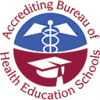Medical Insurance Biller & Coder
More people than ever have access to health insurance and are using health care services today. As the aging population grows, the number of individuals with health insurance will also continue to climb. As a result, there is an increasing demand for trained Medical Insurance Billers and Coders who can organize and manage health care information.
Medical Insurance Billers and Coders and other health information technicians are tasked with documenting the health information for a patient, including their medical history, any symptoms, test results, and treatments, along with any additional information about health care services the patient received. Their responsibilities often depend on their employer and on the size of the health care facility in which they work.
Although Medical Insurance Billers and Coders do not offer hands-on patient care, they often work with doctors, registered nurses, and other health care professionals to clarify diagnoses or to obtain additional information to make sure patient records are complete and accurate.

Medical Insurance Biller & Coder
Medical Insurance Biller & Coder Overview
Medical Insurance Billers and Coders organize and manage health information data and are tasked with recording a patient’s health information, including their medical history, any symptoms, results from tests or examinations, and treatments, along with any additional information about health care services a patient received. Their responsibilities often depend on their employer and on the size of the facility in which they work.
Medical Insurance Billers and Coders regularly take on a number of important tasks, including:
The Medical Insurance Billing program at Glendale Career College equips students with the skills and best practices required to work in a health care or medical office, including medical terminology and basic human anatomy, front office procedures, how to submit medical claims, insurance reimbursement, managed care procedures, computer billing applications, and computer medical coding.
*Glendale Career College is not able to guarantee employment.
Proudly accredited, licensed to operate and/or recognized by the following institutions:



The Medical Insurance Biller & Coder program can be taken at the following campuses:
Meet a Graduate
Questions?
Let us help you launch your career by contacting us today. Simply fill out our contact form or call us at 800-639-3384.
Classes are starting soon!
Train to Become a Medical Coding Specialist at Schools in Los Angeles
Medical Insurance Biller & Coder Careers & Work Environment
The Medical Insurance Billing program at Glendale Career College is a professional health care training course designed to provide the fundamental knowledge and education needed to begin working with medical and insurance records as a medical biller, professional coder or other medical office professional.
Graduates of the program routinely find jobs working in:

Quick Facts about Medical Insurance Billers & Coders*
Medical Insurance Biller & Coder Course Material
The Medical Insurance Biller and Coder program objectives are to provide the student with a comprehensive working knowledge of all phases of medical insurance, consisting of billing, pre-authorization follow-up techniques, and posting insurance payments. The student will graduate with hands-on experience on the computer and experience in an internship. The student will be prepared to accept entry-level positions in doctor’s offices, clinics, hospitals, and medically related insurance companies. The program is offered at our schools in Glendale and San Diego—convenient for students coming from Los Angeles and surrounding areas—and is divided into eight class course modules, including a 180-hour clinical externship where students will apply the skills they learn in the classroom in an actual health care practice setting.
Seminar for Success
Orientation and success building course for Career Students. Review of basic math, language, vocabulary, and writing skills. Introduction to core career classes, availability of community resources, outlining, summarizing, managing credit, and other life skills. Outside preparation and study time, in addition to regular classroom activities, is required to complete the class assignments. The type of outside preparation may take the form of homework assignments, projects, reading, and required studying.
Medical History and Fundamentals
This course provides an overview of the roles and responsibilities of the medical paraprofessional and an introduction to medical specialties and subspecialties. This course introduces the student to the structures and functions of the human body. Topics include the history of medicine, the health care team and office environment, interpersonal communications, medical law and ethics, basic keyboarding, and medical terminology. Outside preparation and study time, in addition to regular classroom activities, is required to complete the class assignments. The type of outside preparation may take the form of homework assignments, projects, reading, and required studying.
Medical Office Administration
This course will introduce students to the basic procedures of the daily management of a medical office. Activities and simulation exercises related to practice management are provided throughout the course. Topics covered include telephone techniques; appointment scheduling; word processing projects, including resumes and cover letters; insurance claims processing; constructing and managing patient records; medical office management software; and basic keyboarding. Outside preparation and study time, in addition to regular classroom activities, is required to complete the class assignments. The type of outside preparation may take the form of homework assignments, projects, reading, and required studying.
Medical Terminology; Anatomy & Physiology
This course provides instruction in medical terminology with emphasis on word structure, including word roots, suffixes, and prefixes. The course covers word meaning and pronunciation in addition to common medical abbreviations. Students will be introduced to basic anatomy and physiology critical to the understanding of medical coding. A study of common disorders and basic diagnostic procedures related to the body systems will be presented. Outside preparation and study time, in addition to regular classroom activities, is required to complete the class assignments. The type of outside preparation may take the form of homework assignments, projects, reading, and required studying.
Medical Health Insurance
This course provides instruction in all aspects of insurance billing, including but not limited to completing, submitting, tracing, and appealing claims. Guidelines for submitting claims to Medicare, Medicaid, TriCare, CHAMPVA, Worker’s Compensation, and disability programs are covered. Students are also introduced to HIPAA compliance issues as they relate to patient privacy. Outside preparation and study time, in addition to regular classroom activities, is required to complete the class assignments. The type of outside preparation may take the form of homework assignments, projects, reading, and required studying.
ICD-9-CM, HCPCS, & Evaluation Management
This course provides detailed instruction in the history, characteristics, and purpose of the coding and classification systems used in the medical claims industry. Students receive an in-depth review of CPT, ICD-9-CM, and HCPCS medical coding systems using the industry standard codebooks and source documents. Outside preparation and study time, in addition to regular classroom activities, is required to complete the class assignments. The type of outside preparation may take the form of homework assignments, projects, reading, and required studying.
CPT Coding
This course provides detailed instruction in the characteristics of the procedural coding and classification system used in the medical claims industry. Students will learn the principles of procedural coding using the Current Procedural Terminology (CPT) medical coding system and manual. Students will also be exposed to various source documents ranging from simple to complex. Outside preparation and study time, in addition to regular classroom activities, is required to complete the class assignments. The type of outside preparation may take the form of homework assignments, projects, reading, and required studying.
Medical Career Fundamentals
This course introduces students to the various roles and responsibilities of the insurance billing specialist. Instruction is provided in office and insurance claim processing procedures, including completing, transmitting, tracing, and appealing claims. Medical records documentation practices and computerized practice management software and techniques are taught. This course also introduces students to office emergencies and first aid techniques. Basic Life Support training for the health care provider gives students the opportunity to become CPR certified. Outside preparation and study time, in addition to regular classroom activities, is required to complete the class assignments. The type of outside preparation may take the form of homework assignments, projects, reading, and required studying.
Clinical Externship
Upon successful completion of classroom training, medical billing and coding students will participate in a supervised 160-hour externship experience in an office setting. This course is a requirement for graduation.
Medical Insurance Biller & Coder Course Activities
Medical Insurance Billers & Coders organize and manage health information data by ensuring that it maintains its quality, accuracy, accessibility, and security in both paper files and electronic systems. They use various classification systems to code and categorize patient information for insurance reimbursement purposes, for databases and registries, and to maintain patients’ medical and treatment histories.

Medical Insurance Biller & Coder typically perform the following tasks:
Request Information
Fill out a short form online and one of our admissions representatives will contact you to answer any questions you have.
Apply Online Now!
Ready to make your decision now? You can apply now online in under a few minutes.
Schedule a Tour
Come and see us in person! Talk to your future instructors, meet your future classmates and get familiar with your new home.

Medical Insurance Biller & Coder Overview
Medical Insurance Billers and Coders organize and manage health information data and are tasked with recording a patient’s health information, including their medical history, any symptoms, results from tests or examinations, and treatments, along with any additional information about health care services a patient received. Their responsibilities often depend on their employer and on the size of the facility in which they work.
Medical Insurance Billers and Coders regularly take on a number of important tasks, including:
The Medical Insurance Billing program at Glendale Career College equips students with the skills and best practices required to work in a health care or medical office, including medical terminology and basic human anatomy, front office procedures, how to submit medical claims, insurance reimbursement, managed care procedures, computer billing applications, and computer medical coding.
*Glendale Career College is not able to guarantee employment.
Proudly accredited, licensed to operate and/or recognized by the following institutions:



The Medical Insurance Biller & Coder program can be taken at the following campuses:
Meet a Graduate
Questions?
Let us help you launch your career by contacting us today. Simply fill out our contact form or call us at 800-639-3384.
Classes are starting soon!
Train to Become a Medical Coding Specialist at Schools in Los Angeles
Medical Insurance Biller & Coder Careers & Work Environment
The Medical Insurance Billing program at Glendale Career College is a professional health care training course designed to provide the fundamental knowledge and education needed to begin working with medical and insurance records as a medical biller, professional coder or other medical office professional.
Graduates of the program routinely find jobs working in:

Quick Facts about Medical Insurance Billers & Coders*
Medical Insurance Biller & Coder Course Material
The Medical Insurance Biller and Coder program objectives are to provide the student with a comprehensive working knowledge of all phases of medical insurance, consisting of billing, pre-authorization follow-up techniques, and posting insurance payments. The student will graduate with hands-on experience on the computer and experience in an internship. The student will be prepared to accept entry-level positions in doctor’s offices, clinics, hospitals, and medically related insurance companies. The program is offered at our schools in Glendale and San Diego—convenient for students coming from Los Angeles and surrounding areas—and is divided into eight class course modules, including a 180-hour clinical externship where students will apply the skills they learn in the classroom in an actual health care practice setting.
Seminar for Success
Orientation and success building course for Career Students. Review of basic math, language, vocabulary, and writing skills. Introduction to core career classes, availability of community resources, outlining, summarizing, managing credit, and other life skills. Outside preparation and study time, in addition to regular classroom activities, is required to complete the class assignments. The type of outside preparation may take the form of homework assignments, projects, reading, and required studying.
Medical History and Fundamentals
This course provides an overview of the roles and responsibilities of the medical paraprofessional and an introduction to medical specialties and subspecialties. This course introduces the student to the structures and functions of the human body. Topics include the history of medicine, the health care team and office environment, interpersonal communications, medical law and ethics, basic keyboarding, and medical terminology. Outside preparation and study time, in addition to regular classroom activities, is required to complete the class assignments. The type of outside preparation may take the form of homework assignments, projects, reading, and required studying.
Medical Office Administration
This course will introduce students to the basic procedures of the daily management of a medical office. Activities and simulation exercises related to practice management are provided throughout the course. Topics covered include telephone techniques; appointment scheduling; word processing projects, including resumes and cover letters; insurance claims processing; constructing and managing patient records; medical office management software; and basic keyboarding. Outside preparation and study time, in addition to regular classroom activities, is required to complete the class assignments. The type of outside preparation may take the form of homework assignments, projects, reading, and required studying.
Medical Terminology; Anatomy & Physiology
This course provides instruction in medical terminology with emphasis on word structure, including word roots, suffixes, and prefixes. The course covers word meaning and pronunciation in addition to common medical abbreviations. Students will be introduced to basic anatomy and physiology critical to the understanding of medical coding. A study of common disorders and basic diagnostic procedures related to the body systems will be presented. Outside preparation and study time, in addition to regular classroom activities, is required to complete the class assignments. The type of outside preparation may take the form of homework assignments, projects, reading, and required studying.
Medical Health Insurance
This course provides instruction in all aspects of insurance billing, including but not limited to completing, submitting, tracing, and appealing claims. Guidelines for submitting claims to Medicare, Medicaid, TriCare, CHAMPVA, Worker’s Compensation, and disability programs are covered. Students are also introduced to HIPAA compliance issues as they relate to patient privacy. Outside preparation and study time, in addition to regular classroom activities, is required to complete the class assignments. The type of outside preparation may take the form of homework assignments, projects, reading, and required studying.
ICD-9-CM, HCPCS, & Evaluation Management
This course provides detailed instruction in the history, characteristics, and purpose of the coding and classification systems used in the medical claims industry. Students receive an in-depth review of CPT, ICD-9-CM, and HCPCS medical coding systems using the industry standard codebooks and source documents. Outside preparation and study time, in addition to regular classroom activities, is required to complete the class assignments. The type of outside preparation may take the form of homework assignments, projects, reading, and required studying.
CPT Coding
This course provides detailed instruction in the characteristics of the procedural coding and classification system used in the medical claims industry. Students will learn the principles of procedural coding using the Current Procedural Terminology (CPT) medical coding system and manual. Students will also be exposed to various source documents ranging from simple to complex. Outside preparation and study time, in addition to regular classroom activities, is required to complete the class assignments. The type of outside preparation may take the form of homework assignments, projects, reading, and required studying.
Medical Career Fundamentals
This course introduces students to the various roles and responsibilities of the insurance billing specialist. Instruction is provided in office and insurance claim processing procedures, including completing, transmitting, tracing, and appealing claims. Medical records documentation practices and computerized practice management software and techniques are taught. This course also introduces students to office emergencies and first aid techniques. Basic Life Support training for the health care provider gives students the opportunity to become CPR certified. Outside preparation and study time, in addition to regular classroom activities, is required to complete the class assignments. The type of outside preparation may take the form of homework assignments, projects, reading, and required studying.
Clinical Externship
Upon successful completion of classroom training, medical billing and coding students will participate in a supervised 160-hour externship experience in an office setting. This course is a requirement for graduation.
Medical Insurance Biller & Coder Course Activities
Medical Insurance Billers & Coders organize and manage health information data by ensuring that it maintains its quality, accuracy, accessibility, and security in both paper files and electronic systems. They use various classification systems to code and categorize patient information for insurance reimbursement purposes, for databases and registries, and to maintain patients’ medical and treatment histories.

